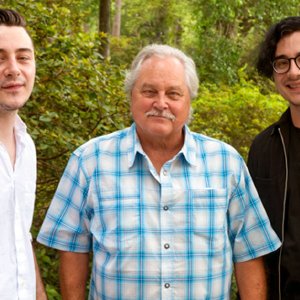Helping or Enabling an Addict?

My job consists of helping families each day to get their loved ones into treatment. The one thing most of them have in common is not being able to distinguish the differences between enabling an addict and helping them. All families want to help but many times they make the addiction worse by enabling.
Then, there are some families who are cautious not to enable and therefore don’t help. It can get very confusing, so I wanted to assist in isolating the differences between the two—helping and enabling.
You are ENABLING someone by:
- GIVING THEM MONEY. An addict will give you every excuse in the book to get money and they can be very convincing. Don’t fall for any of it. That $20 you give them for “food” can wind up being the money to buy a drug that kills them.
- PAYING FOR A CAR. This one can be a double-edged sword. They need a car to be a productive member of society and get to and from work. Unfortunately, the vehicle you may be providing is more than likely being used to drive around and pick up drugs, not to go to work. In a circle of drug addicts, the one with the car is a hot commodity. Other addicts will give them drugs just for providing rides for drug deals. If they get busted for doing this, the one who is driving in their own vehicle will catch the charges.
- PAYING FOR A PHONE. Most families fear if they take a phone away from them, the addict will not be able to contact the family if they need anything. The problem is most of the time, they never answer your calls and you are the one paying for the phone! Cell phones are extremely important today to use for communication which unfortunately includes communicating in order to buy drugs. A solution to this can be setting up a phone where they can only call you and everyone else is restricted.
- PAYING FOR OR PROVIDING A PLACE TO LIVE. Drug addicts wreak havoc on a home and this can be especially dangerous if there are children in the home. Some families will pay an addict’s rent or give them another place to live which is even worse. The objection I always hear is “they will die if I kick them out.” However, you must remember this, their risk of overdosing at your home is even higher because they have more money for drugs. And if they overdose at home, that means someone in the family will find them and no family member should have to go through that.
- BAILING THEM OUT OF JAIL. Jail is a terrible place, and nobody wants to see their loved one behind bars. I know families who have spent thousands of dollars bailing out a loved one over and over and the result is there is no money left for actual treatment. Repeatedly bailing them out gives them the easy way out and does not help anyone. The only time it is justifiable to bail them out is to get them into treatment. Jail will get them sober for the moment, but is not actual treatment and will not give them tools to stay sober.
You are HELPING them by:
- GIVING THEM FOOD. If they are starving and asking you for money for food, have them come to your house for a home-cooked meal or if you do not want them in your home, meet them and take them out to eat. This will give you some valuable one-on-one time with them to see how they are doing. It is also not placing money in their hands. I promise you an addict with money will choose drugs over food every time.
- HIRING AN INTERVENTIONIST. There is a common misconception that treatment will not work if it requires an interventionist. This is far from the truth. An interventionist’s job is to get an addict’s willingness but not force them into treatment. I have worked at a drug and alcohol rehab center for a long time and I find the people who had an intervention tend to be more successful in treatment. Addicts have a really hard time with taking that first step, but most of them do not want to live this life forever. An interventionist is there to hold their hand and guide them to help.
- GETTING TREATMENT. If you are going to spend money on an addict, I highly recommend it goes to treatment. It is the only thing that will handle this problem once and for all. If they had a medical condition or needed open heart surgery, you would do everything you could to get them the best doctors you could find. Treatment should be treated the same way.
- BEING THERE FOR THEM. Cutting them off financially is different than cutting them off physically. You must be there for them when they are finally ready for help because that window of time is very small. You don’t want to give up on them—you want to be there for them.
- HOLDING THEM ACCOUNTABLE. Addicts make enough excuses. Don’t feed into them and give them more excuses to continue using. The bottom line starts with you. If you hold the line, then they will eventually fall into place.
A lot of these things are easier said than done. It is difficult to get an addict willing to get into treatment, so don’t make it easy for them to be an addict by enabling them. If an addict has everything provided for them, then they will not want to quit drugs. I hope these tips are helpful for you. You can always give me a call if you have further questions. I will be here!

